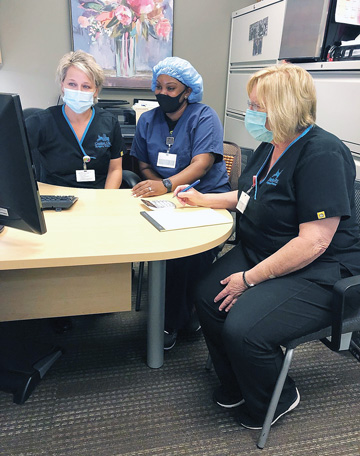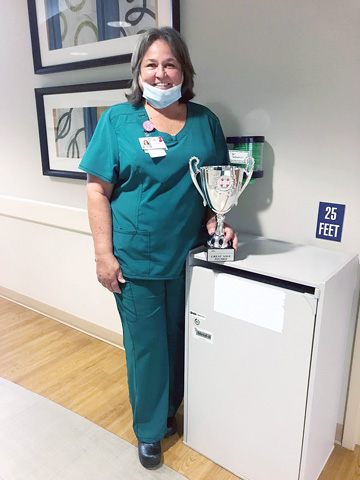The Surgery Center of Fairbanks was rolling along, kept afloat by revenue from GI cases and other small procedures, while its leadership was blissfully unaware that the orthopedic service line was hemorrhaging money. It turns out the center was paying more for implants alone than the entire reimbursement for some total joint cases. How could that have happened? Where to begin?
If a surgeon wanted a certain implant, the surgeon got it. Always. No questions asked. Ever. In an industry where negotiated prices and discounts are the norm, the center was sometimes paying higher than list price for implants, plates and screws. Vendor reps told members of the center’s business office the amounts that should be put on the purchase orders. That’s the amount that was logged, and that’s the amount that was paid — with no scrutiny.
“Losing money on every orthopedic case obviously wasn’t sustainable,” says Rachel Piszdzek, BSN, RN, CNOR, CAPA, CNAMB, the center’s perioperative services director. “We were underwater before the patient entered the operating room.”
In the process of getting to the bottom of what went wrong, the staff also learned how to make things right — and became skilled negotiators in the process. They also earned the 2021 OR Excellence Award for Financial Management.
The first item on the turnaround agenda was to hire a consultant with access to what other surgery centers were paying for the same devices Fairbanks was using. The consultant was also knowledgeable about less expensive alternate devices that could be used.
“Armed with that information, we called the vendors and asked for their lowest and best offers,” says Administrator Keli Hite McGee, MA.
Vendors’ reactions to the center’s new way of doing business was mixed. Some said their prices were justified because it cost more for them to ship products and send vendors to Alaska. One company was particularly unwilling to negotiate. Ms. McGee dug in, and even made “Divorce(company name)” her password to log into her work computer each day.
With the physicians’ backing, Ms. McGee and Ms. Piszdzek began negotiating with, and sometimes actually ordering, less expensive implants and hardware. The company with which Ms. McGee vowed to divorce Fairbanks from doing business with suddenly found itself with only 30% of the purchases they counted on from the center.
.svg?sfvrsn=be606e78_3)


.svg?sfvrsn=56b2f850_5)